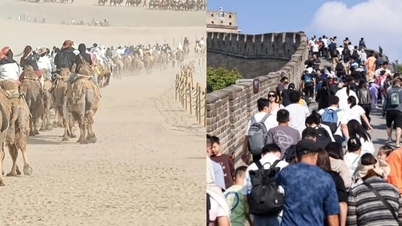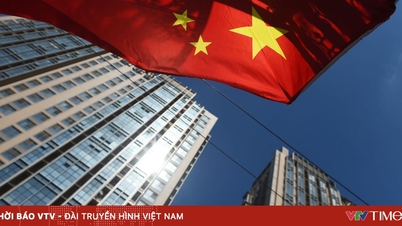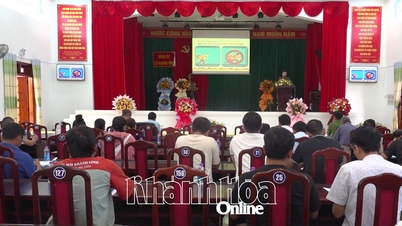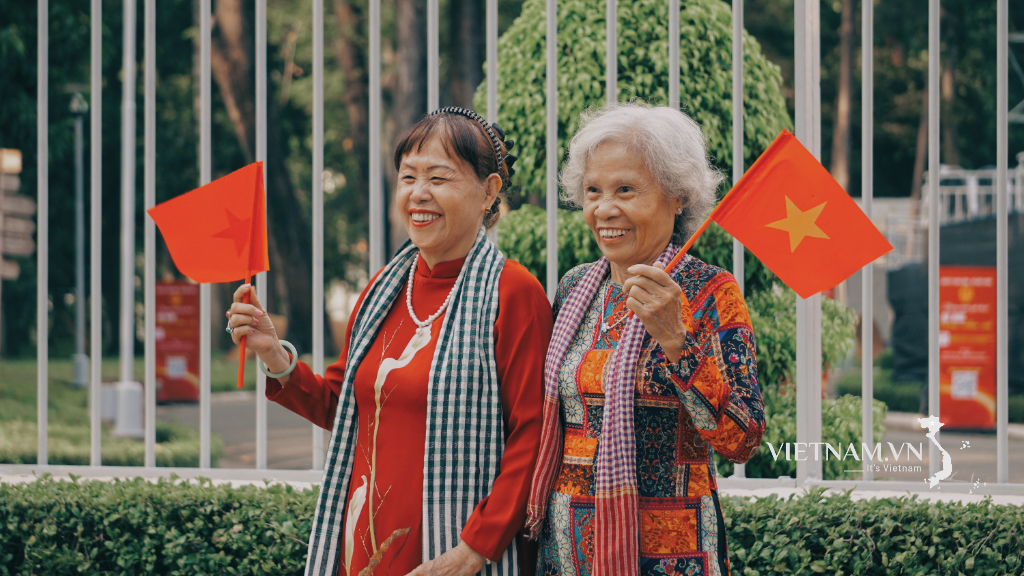
During the October 1-8 holiday, also known as the "Golden Week," a total of 888 million domestic trips were made, generating revenue of 809.01 billion yuan ($113.63 billion), according to official data released on October 9.
Total domestic trips increased 1.8% while revenue increased 7.6% compared to last year, according to CNBC calculations.
However, the growth slowed down compared to the five-day holiday from May 1 to 5 earlier this year, with the number of domestic trips and tourism revenue increasing by 6.4% and 8%, respectively.
In fact, average spending per domestic trip during Golden Week was also about 3% lower than in 2019 before the pandemic, according to Goldman Sachs.
Mr. Mix Shi, founder of PoshPacker Hostels Chengdu Group, said that during Golden Week, room rates were discounted by about 60% per night, and many nearby hotels had even deeper discounts.
“Recently, the hotel industry has poured too much money into this sector. Competition is getting fiercer. Some places are really nice but the room prices are extremely cheap. This is very good for tourists because they have more choices, but it is a big blow to the industry,” Mr. Shi said.
This year's Golden Week is also one day longer than usual because it coincides with the Mid-Autumn Festival.
Official domestic tourism revenue during Golden Week alone increased 15.4% compared to 2024, but when revenue was added to last year's Mid-Autumn Festival, the growth slowed to 7.6%, according to CNBC calculations.
“Everyone works harder, spends more, but the profit gap is smaller,” said Sasa Yau, who runs a guesthouse and restaurant in the southern Chinese city of Guangzhou.
The attraction of incentive programs
In Chengdu, famous for its giant pandas and spicy cuisine , Mix Shi, founder of PoshPacker Hostels Chengdu Group, said travelers tend to book rooms one or two days in advance, rather than one or two weeks, making room prices difficult to control.
With China's extensive network of high-speed trains and airports, airfares are sometimes cheaper than train tickets, making it easier to travel at will.
Large price fluctuations and difficulties in booking tickets for the first or last day of the holiday are also reasons that push travelers to rearrange their travel schedules and save costs.
According to Chinese travel booking website Trip.com, many tourists have chosen to travel before or after Golden Week this year.
The site also notes that hotel prices in late September are about 20% cheaper than during Golden Week, while airfares mid-holiday are more than 30% cheaper than at the beginning of the holiday.
Alibaba-owned travel booking site Fliggy said its average spend per travel booking increased 14.6% year-on-year.
Much cheaper flights started on the weekend after the holiday, such as a flight from Shanghai to Hong Kong (China), for less than 400 yuan ($56).
Official figures also show a surge in road trips, with the holiday period seeing an average of 304 million trips a day, mostly by car.
“The Golden Week has created a wave of energy across China: record-breaking tourism, booming business activity and new spending trends. All of which have strongly boosted domestic demand,” said Bruce Pang, visiting associate professor at CUHK Business School.
However, it will take some time before the consumer price index returns to positive growth year-on-year, according to Mr. Bruce Pang.
China's official consumer prices fell 0.4% in August from a year earlier, but rose 0.9% excluding food and energy prices.
The tourism segment also saw prices rise 0.7% year-on-year in August, but were still 0.3% lower in the January-August period compared to the same period in 2024.
Travel platforms also report increased demand in smaller cities, where prices can be much lower.
Source: https://baovanhoa.vn/du-lich/du-lich-trung-quoc-canh-tranh-khoc-liet-dip-tuan-le-vang-173667.html


![[Photo] Standing member of the Secretariat Tran Cam Tu works with the Standing Committee of the Party Committee of the Ministry of Health](https://vphoto.vietnam.vn/thumb/1200x675/vietnam/resource/IMAGE/2025/10/10/1760079818773_image-4-6972-jpg.webp)


![[Photo] Unique Phu Gia horse hat weaving craft](https://vphoto.vietnam.vn/thumb/1200x675/vietnam/resource/IMAGE/2025/10/10/1760084018320_ndo_br_01-jpg.webp)
![[Photo] "Exposing letters" in the flood center of Lang Son](https://vphoto.vietnam.vn/thumb/1200x675/vietnam/resource/IMAGE/2025/10/10/1760080117518_ndo_br_z7101324112737-07cd4d1c01801a8ccf4ae0cbaf31c4a3-507-jpg.webp)


































































































Comment (0)